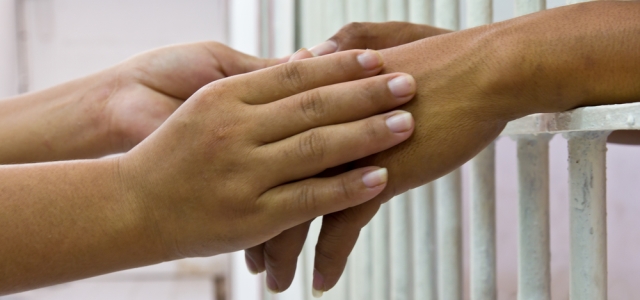 For years, leading family and children’s advocates have argued that the bond between parent and child is often a casualty of our broken immigration system. Consequently, they have argued that ensuring parental rights in the context of immigration proceedings is critical—whether the issue is about determining who should have custody of an unaccompanied minor, exercising discretion to release a sole caregiver from detention, or ensuring that a person in immigration proceedings doesn’t automatically lose parental rights. On Friday, Immigration and Customs Enforcement (ICE) finally released a memorandum that offers clear guidelines on these questions. Unfortunately, some people, like House Immigration Subcommittee Chairman Bob Goodlatte, immediately tried to turn this into a political issue about immigration reform, instead of what it is—guidance for making sure the rights of parents and children are protected.
For years, leading family and children’s advocates have argued that the bond between parent and child is often a casualty of our broken immigration system. Consequently, they have argued that ensuring parental rights in the context of immigration proceedings is critical—whether the issue is about determining who should have custody of an unaccompanied minor, exercising discretion to release a sole caregiver from detention, or ensuring that a person in immigration proceedings doesn’t automatically lose parental rights. On Friday, Immigration and Customs Enforcement (ICE) finally released a memorandum that offers clear guidelines on these questions. Unfortunately, some people, like House Immigration Subcommittee Chairman Bob Goodlatte, immediately tried to turn this into a political issue about immigration reform, instead of what it is—guidance for making sure the rights of parents and children are protected.
For the most part, the August 23 memo reiterates the basic enforcement priorities and guidance on prosecutorial discretion that have been in effect for years. For instance, the directive, signed by Acting ICE Director Jon Sandweg, reminds ICE officers that they must continue to review all cases individually and “continue to weigh whether an exercise of prosecutorial discretion may be warranted” while considering such factors such as whether the immigrant is a parent, guardian, or primary caretaker of a U.S. citizen or a minor. The directive builds on more recent memos on discretion and deferred action, ensuring that familial relations are included when deferred action is considered. Perhaps most striking, it provides that when immigrants with children are detained or removed it should be done in a way that ensures that they can be present in family court proceedings, if their presence is necessary, can receive visits from their children, and can arrange for their children’s care in the U.S. or repatriation abroad after their deportation in a way that is cognizant of the children’s needs.
These common sense requirements should be heralded as an effort to recognize the increasingly interconnected issues arising between civil child custody matters and immigration enforcement. In fact, during the Bush administration, ICE Assistant Secretary Julie Meyers Wood, issued a series of guidelines dealing with custody of children following major worksite enforcement raids. Nonetheless, Congressman Goodlatte immediately lashed out at ICE, arguing that the new directive “poisons the debate surrounding immigration reform” and shows that the Obama administration “unilaterally ignores immigration laws” by “mandating prosecutorial discretion for illegal immigrants who are the primary caretakers of minor children” and “directing U.S. Immigration and Customs Enforcement agents to stop removing broad categories of unlawful immigrants.”
The necessity of a memo like this clearly points to just how badly we need immigration reform. Far too many parents and children are separated needlessly by our current immigration system—many of those families would benefit not only from legalization, but from reductions in the backlog for family and employment based visas, more sensible enforcement policies, and limits to detention. The policies will not legalize any undocumented immigrant, will not mandate exemptions from any law, and will only clarify the parameters of the discretion that the authorities have always had to consider the wellbeing of children. At a minimum, acknowledging that family relationships are affected by ICE’s actions is a start to decreasing the rhetoric around enforcement policies and having a more rational discussion about what is required to create a fair and humane policy when detention and removal is necessary.
FILED UNDER: Children, DREAM Act, enforcement, Executive Branch, Morton Memo, prosecutorial discretion, Republicans, Restrictionists


